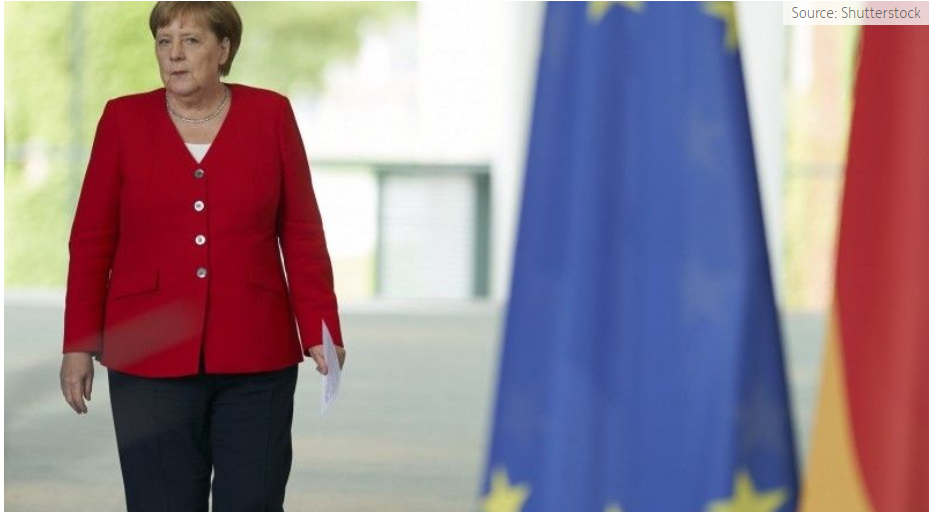ING analyser kampen denne weekend om formandsskabet i det største tyske parti, CDU. Valget vil ikke umiddelbart vise, hvem der bliver kansler Merkels efterfølger. Nye kanslerkandidater kan komme på banen. Det ændrer dog ikke ved Tysklands stærke rolle i EU. Derimod vil valget til efteråret give en indikation af, om eurozonen bliver stærkere eller svagere – som motoren i EU. De grønne får en nøglerolle.
Germany: Your quick guide to this week’s CDU leadership vote
With national elections looming at the end of September and Angela Merkel not running for office, her party, the CDU, will choose a new leader this week. He, however, will not automatically lead the party into the elections, nor be the next Chancellor. Nevertheless, this week’s vote is an important step on the long road to September
With the pandemic dominating politics and economics for more than ten months, the background of the leadership vote almost looks unreal or at least stems from a very different era. Back in the summer of 2018 and under the pressure of lost regional elections, the rise of the populist AfD and increasing controversies on the future political course of the party, Angela Merkel resigned as party leader and announced that she wouldn’t run again in national elections in 2021.
The end of an era. Merkel had been party leader since April 2000 and has been German chancellor since November 2005. In December 2018, Merkel was succeeded by her protégé, Annegret Kramp-Karrenbauer (AKK), who in turn and after several political and communicative glitches, announced her resignation as party leader in February 2020. Since then, two attempts to organise a party assembly to vote on a new leader were postponed due to the pandemic.
This week, the CDU will finally have a digital party assembly and 1001 party delegates will vote the new leader. The digital vote will take place on Saturday. Afterwards, delegates have to confirm their vote in a mail ballot. The result will be announced on Friday 22 January.
Who are the candidates?
Three middle-aged men all from the state North-Rhine Westphalia. In alphabetical order, these are Armin Laschet, Friedrich Merz and Norbert Röttgen. All three are political veterans, having held or are still holding different roles in the party. All three have their own personal history with Angela Merkel.
Armin Laschet is currently the only one of the three who holds an official post as minister-president of North-Rhine Westphalia. Laschet is largely viewed as Merkel’s continuity candidate. Broadly on the party’s centre-left wing, Laschet looks pragmatic enough to currently lead a conservative-liberal government. Laschet has been quoted, saying that he wanted the CDU to become ‘Europe’s most modern party’ and wants it to appeal to more women, young people and immigrants.
Friedrich Merz was the CDU party whip between 2000 and 2002 and was the big rival of Angela Merkel for the party leadership. He stepped down in favour (and under pressure) of Merkel, who wanted to take both organisational and political leadership of the party, and gradually withdrew from politics. Merz returned to the political front-line in 2018 but narrowly lost the party leadership race against AKK. Merz stands for a return of the party to social and fiscal conservatism.
Norbert Röttgen currently chairs the Bundestag’s Foreign Affairs Committee. He was once a close protégé of Merkel and federal minister for the environment between 2009 and 2012. Merkel dismissed Röttgen from office after his attempt to become minister-president of North-Rhine Westphalia ended with a severe defeat. Röttgen has emphasised that he doesn’t stand for any particular political wing in the party.
What does the leadership vote mean for the future path of the CDU?
Under Angela Merkel, the CDU has moved to the political centre in Germany, also covering typical social-democratic or green topics. This has helped it to be one of the very few parties in Europe gaining between 30% and 40% of the popular vote and being able to govern the country with only one coalition partner. In recent years, however, and partly triggered by the refugee crisis, the rise of the right-wing AfD has undermined support for the CDU, particularly in Eastern Germany and has led to a heated debated within the party over its future course.
Simply put, Merz stands for a return to more social and fiscal conservatism, Laschet and Röttgen stand for a continuation of the current political stance. Admittedly, all three candidates have avoided being too outspoken in the run-up to the leadership vote. Also, don’t forget that this is a party leadership vote, not a general election. Which brings us to the following question:
What does the CDU leadership vote mean for the general elections in September?
Unlike other countries, in Germany, the party leader is also the political leader. At least this is the tradition of the two major parties: CDU and SPD. This is why the CDU leadership race is so important for German politics as it gives the next CDU leader a clear advantage for also leading the party into the general election in September. Given the clear lead of the CDU in all polls, chances are high that any CDU candidate will also become the next government leader. However, it is not cast in stone that the head of the CDU will be the party’s candidate for the Chancellory.
A special feature of German politics and the CDU is that at the national level, the CDU forms one parliamentarian group with the CSU. The CSU is the CDU’s sister party and is only active in Bavaria. Both parties always agree on one single candidate to lead both parties into national elections. Only at two occasions was the CDU/CSU led by a CSU politician. Both times, the party lost the elections.
Chances are high that two other politicians could enter the race after the party elections
Given that all three candidates for the CDU party leadership are currently not really popular in the broader electorate, chances are high that two other politicians could enter the race after the party elections: Bavarian minister-president and leader of the CDU’s sister party, CSU, Markus Söder, and federal Health Minister, Jens Spahn. Both according to national polls are currently far more popular than any of the three candidates for party leadership.
The issue is whether all three potential CDU party leaders would want to run themselves or whether they would try to find a candidate with potentially better chances to win the election. In our view, in the event of Friedrich Merz winning the party leadership, chances are high that he would want to run in the general elections himself. With Armin Laschet or Norbert Röttgen winning, chances for Markus Söder running for the elections, in particular, would rise. Jens Spahn remains the promising outsider.
What will the September elections have in store?
Contrary to other European countries, neither the CDU leadership race nor the general election can be boiled down to the simple question of whether Germany will become more or less ‘European’. In fact, the only potentially anti-European parties are on the far left and the far right and together claim less than 20% in the polls.
The better question to ask is whether the next German government will be in favour of more or less eurozone integration. Answering this question does not only depend on the outcome of the CDU leadership race but also on the coalition partners. Currently, many configurations could be possible, ranging from a CDU-Greens government to a centre-left government, led by the SPD.











